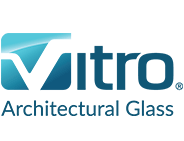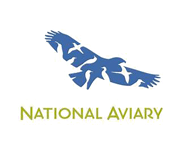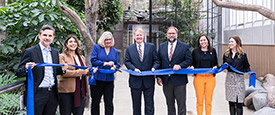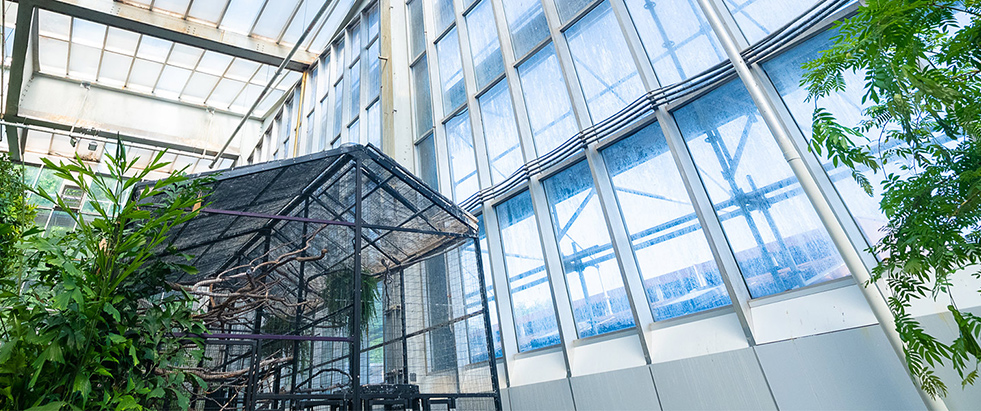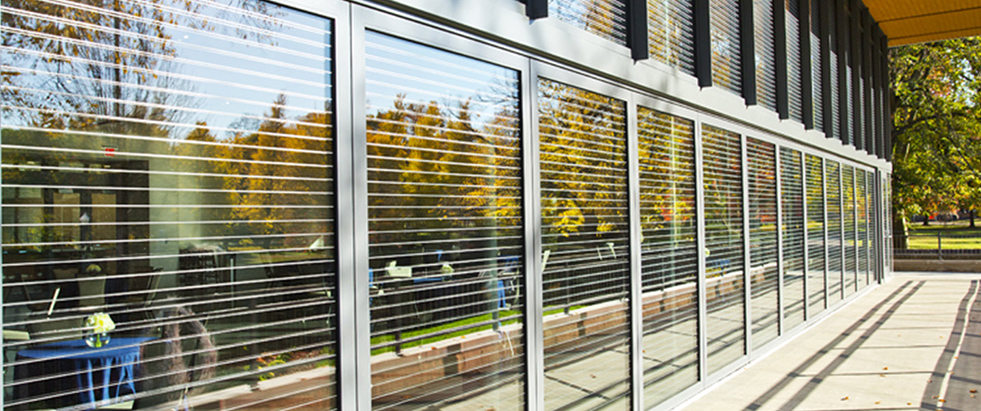The Garden Room, the newest event space at the National Aviary, features stunning expanses of bird-friendly, energy-efficient AviProtek® E glass.
Located in Allegheny Commons Park on Pittsburgh’s North Side, the National Aviary is home to a diverse collection of more than 500 birds representing more than 150 species from around the world. Founded in 1952, it remains America’s only independent indoor nonprofit zoo dedicated exclusively to birds.
In early 2020, the National Aviary began construction on The Garden Room, a new glass-enclosed event space created to accommodate a variety of gatherings that are traditionally in popular demand at the facility. Now open to the public, The Garden Room is noteworthy for its wide expanses of AviProtek® E glass by Walker Glass, the only bird-friendly glass that combines acid-etched visual markers on the first surface of an insulating glass unit (IGU) with Solarban® solar control, low-e coatings by Vitro Architectural Glass on the second surface to create an energy-efficient, bird-safe glazing solution.
“The National Aviary works hard every day to provide the best possible care for our birds and is dedicated to protecting birds in the wild through field conservation programs and education,” said Cheryl Tracy, executive director of the National Aviary. “As we made plans for The Garden Room, it was important to us to uphold these principles and to select materials that would help keep the wild birds in our neighboring park safe.”
The design of the glass was especially important for a space like this one, as The Garden Room incorporates floor-to-ceiling windows to provide ample views and seamless flow into the historic Rose Garden and the surrounding city park.
“I wanted to make sure the glass was natural and elegant, in keeping with the overall aesthetic,” added Tracy. “I was very involved with the design team, which included Aviary representatives, in selecting the horizontal stripe pattern of this particular glass because it’s both elegant and effective in reducing bird strikes.”
Along with the aesthetic value they provide, the Solarban® solar control, low-e coatings specified with AviProtek® E glass help the National Aviary operate more efficiently. They do so by blocking more than 70% of the sun’s heat energy while transmitting virtually all of its daylight to reduce artificial lighting costs. The result is a venue that is brighter, more comfortable and better for the environment because it consumes less energy.
The Garden Room can be used for special events, weddings and educational programs, but another particular benefit of the space is that it will offer even more room for programming to support physical distancing among National Aviary guests. The glass and the open-air access to the surrounding garden allow the facility to feel embedded with nature while offering the all the refinements of an indoor, temperature-controlled space.
In addition to the National Aviary’s commitment to designing with bird-safe glass, the staff also prioritizes education. Visitors are taught about the issue of window strikes for birds when touring the facility, which includes a Tropical Rainforest, another historic attraction that was renovated in 2018 to incorporate bird-safe glass from Walker Glass and Vitro Glass.
The Garden Room was designed by Tony Pitassi of Perfido Weiskopf Wagstaff + Goettel, a Pittsburgh-based architectural firm, to feature about 2,700 square feet of glass. Working as a group, he, Tracy and the design team consulted with experts from Walker Glass and Vitro Glass as well as the American Bird Conservancy to consider a range of glass options that would reduce bird collisions while enhancing the bright, open aesthetic of the new building.
“The National Aviary's bird experts were integral to the process of evaluating glass that meets bird-safe standards,” said Pitassi. “Given the desire for transparency in the building envelope, which is conducive to emulating the natural environment for the inhabitants, maximizing glass areas was a key to the project.”
